Welcome to my blog!
Every morning, I begin with a cup of coffee and 15 minutes of free thinking. I write down everything that comes to mind, from new ideas to thoughts that emerged overnight. This is where I develop and refine my new research. You'll find some repetition and ideas still in progress. Some might seem unusual or unclear at first, but that's part of the journey! I'm excited to share how my ideas form and evolve.
Disentangling Equity from Special Treatment: A Critical Look at the Perception of Marginalized Groups’ Demands
This post examines how demands for equity by marginalized groups are often misinterpreted as calls for special treatment, particularly when these groups are ethnic minorities, using a notable speech by Don Brash as a case study.
Marginalized groups' calls for equity are frequently misunderstood as demands for special treatment. This misunderstanding becomes particularly pronounced when the group in question is an ethnic minority. Their appeals for fairness are often viewed through a lens that paints them as race-based demands. A compelling illustration of this dynamic can be found in a speech delivered to the Orewa Rotary Club in 2004 by Don Brash, then-leader of New Zealand's National Party. Brash's argument draws on a piece by Simon Chapple in the Policy Science journal (2000), which contends that there is no direct correlation between being Māori and experiencing societal disadvantage, arguing that disadvantage is not uniquely tied to ethnicity but to broader socio-economic factors.
Chapple's analysis suggests that the notion of Māori identity is fluid, shaped by self-identification and intermarriage with non-Māori, leading to significant variability within the Māori population itself. He identifies a specific subgroup—those strictly identifying as Māori, residing in rural areas, and lacking education—as facing disproportionate disadvantage. However, he argues that these challenges are not a product of their Māori identity but of general societal factors such as geographical isolation and educational attainment, which affect all individuals in similar circumstances, regardless of their ethnicity.
This perspective fuels Brash's claim that Māori demands for equity are "racist," under the premise that they seek benefits exclusively for Māori, neglecting others in similarly disadvantaged positions who do not identify as Māori. Such arguments, however, miss the broader point of equity movements: they do not demand special treatment for marginalized groups but seek to address systemic inequalities that disproportionately affect these groups. By framing these demands as race-based or otherwise exclusionary, critics like Brash not only misrepresent the goals of equity initiatives but also contribute to a discourse that can silence or erase the very groups advocating for change.
The critique of equity calls as being "racist," "selfish," or "sexist" reflects a broader pattern of resistance to social justice efforts, which often seeks to discredit or diminish the legitimacy of these movements. This pattern systematically turns against the oppressed groups in a way that not only reinforces the very oppression being challenged but also employs tactics of silencing or erasing these groups under the guise of universality—that measures should apply to everyone equally, disregarding the nuanced and specific nature of their struggles.
At the core of my exploration is an attempt to better understand these responses to calls for equity. The assertion that such demands are, in various contexts, labeled as "racist" (as in the case of ethnic equity), "selfish" (as seen against trans activism), or "sexist" (against feminist movements) reveals a troubling strategy. This strategy seeks to discredit and diminish the legitimacy of these calls by framing them in a manner that not only misrepresents their intentions but also bolsters the existing structures of oppression. By labeling these calls as divisive or exclusionary, the discourse shifts from addressing systemic inequalities to questioning the validity of the groups’ grievances, effectively silencing or erasing their voices under the pretense of seeking a universal solution that often overlooks the specific needs and challenges faced by marginalized communities.
References: https://www.donbrash.com/national-party/orewa-2004-nationhood/
Simon Chapple, “Maori Socio-economic Disparity”, Political Science, Vol 52, No 2, December 2000.
Unraveling Feminist Logic: A Critical Lens on Power and Neutrality in Dialectical Spaces
In this post, the Logic in the Wild framework is employed to refresh feminist critiques of logic, steering away from evolutionary simplifications and gender symbolism errors.
Is there such a thing as feminist logic, and what is it? It's crucial to understand that feminist logic is not a form of reasoning exclusive to females, women, or what might be considered 'feminine' thinking. If we entertain the idea that logic is a product of evolution, it's hard to imagine how it could have developed differently for female members of our species compared to males over thousands or millions of years. Despite potential internet lore suggesting otherwise, the notion seems implausible at best.
The distinction between feminine and masculine logic, especially when considering these concepts as social constructs, falls into the trap of gender symbolism. This is the erroneous practice of assigning gendered traits to non-gendered entities, such as the Moon being feminine and the Sun masculine in French, a convention that varies across languages. Given that logic serves as the guardian of coherence, focusing on patterns of thought rather than content, as I present it in Logic in the Wild, attributing gender symbolism to it constitutes a categorical mistake.
This leads us to inquire: does feminist logic relate to the distinction between man and woman, a debate more centered on gender than sex? At this juncture, the intersection of feminism and logic becomes increasingly relevant. Research specifically targeting the question of whether women employ a distinct form of logic is sparse. Historically, the discourse has predominantly leaned towards broader intellectual disparities. A narrative deeply rooted in European history, stretching back to Ancient Greece, posits that women are predominantly influenced by emotions and passions, as opposed to reason. This perspective finds echoes in discussions concerning race, skin color, and sexual orientation, among other attributes. I’ve discussed these parallels in a previous post, highlighting how intersectional concerns render such accusations absurd.
However, conceptualizing logic as the guardian of coherence clarifies that it operates independently of gender identification. This demonstrates that the function of guarding coherence goes beyond the nuances associated with gender identity. Thus, feminist logic is not merely about identifying a distinct form of reasoning tied to females, women, or femininity. In Logic in the Wild, I discuss how logic provides a neutral space for dialectical inquiry. It is at this point that feminist critiques become particularly important and relevant. These critiques urge a critical examination of the notion of neutrality. The idea of a dialectical space, filled by agents with varying levels of power and influence, highlights that neutrality in terms of content does not inherently lead to justice or an equitable distribution of power within such spaces. This insight emphasizes the need for a nuanced understanding of logic's role in societal discourses, bringing to the fore the vital intersections where feminist concerns are paramount.
It is in this context that feminist logic offers a profound critique of the power imbalances persisting in supposedly neutral dialectical spaces of enquiry. This analysis extends beyond feminism to include insights from queer theory, post-colonial theory, and critical theory at large.
In conclusion, feminist logic represents a critical examination of the power dynamics inherent in neutral spaces of dialectical inquiry, highlighting the need for equity and justice. It challenges us to rethink our assumptions about neutrality and the distribution of power in intellectual discourse, informed by the valuable perspectives of feminism and other critical theories.
Terrain of Oppression: Exposing Layers of Injustice
This post explores the intricate dimensions of oppression, underscoring the necessity of a multifaceted approach to ignite insightful discussions and drive forward initiatives for social justice.
To grasp the patterns of oppression, one must analyze society by dividing it into subgroups. This division can follow various conceptual frameworks. For instance, dividing by countries allows us to identify which nations wield greater power. In the 20th century, the United States emerged as a dominant force, wielding economic, military, and cultural influence. This power dynamic has led to oppressive practices towards other nations, including economic subjugation, the detrimental impacts of the war on drugs, and cultural dominance that threatens to overshadow other cultures.
Expanding our perspective both geographically and temporally, we can examine the global oppression perpetrated by Western countries over the last five centuries. European colonization involved invasions, countless crimes, genocides, cultural theft, and the establishment of economies reliant on slavery and exploitation.
However, oppression can also manifest within a country, affecting the distribution of power among its citizens. Critical questions to consider include whether leadership roles are predominantly or exclusively held by men, if people of color are overrepresented in low-income jobs or the prison population, and whether marginalized groups like the LGBTQ+ community enjoy equal rights and opportunities.
Another critical aspect to consider is how we measure the distribution of power. While economic metrics are commonly used, equating cultural impact to economic value, this approach can overlook the ethical dimensions of power distribution. A more nuanced analysis would consider who is free to thrive and who is systematically marginalized or erased.
The perception of societal homogeneity can obscure the salient axes of oppression. Growing up in late 20th-century Quebec, the population seemed homogeneous enough for broad analyses based on economic concerns and class divisions. However, as the world became more interconnected in the 2000s, it became apparent that this perceived homogeneity masked the existence of other marginalized groups. The global stage has since provided these groups with platforms to voice their experiences, though these platforms are often fragile.
Today's discussion aims to elucidate the various dimensions of oppression to facilitate a nuanced dialogue on social justice. It challenges us to recognize that methods once deemed effective in addressing oppression may now inadvertently perpetuate it. Is this paradoxical? Perhaps, but acknowledging the complexity of oppression is crucial for developing more inclusive and effective measures.
Embracing the Beauty in Everyone: A Lesson from a Friend's Faith
Exploring a friend's journey with Jesus, this post reveals how his faith leads to a profound appreciation for the beauty in every individual, transcending traditional religious divides.
A friend of mine harbours a profound affection for Jesus. Curious, I once inquired about his denominational allegiance, only to learn he harbours no concern for the divides among Christian sects. His focus lies squarely on the teachings of Jesus and the call to love others. The fervour in his eyes when he discusses this topic is unmistakable.
Recently, I checked in to see how he was faring, and he expressed great happiness, attributing his well-being to Jesus once more. This piqued my curiosity about what Jesus adds to his life. Initially, I anticipated he might speak to the sense of purpose or direction Jesus offers. Yet, his actual response ventured down an unexpected path. He reflected on how Jesus helped him recognize the beauty in God’s creation that is present in everyone. He articulated a belief that we are all made in the image of God, and if we choose to look, we can see that divine reflection in each person.
This perspective, he explained, teaches him to appreciate everyone's inherent beauty, devoid of self-centredness or judgment. Observing him, one can't help but notice the genuine generosity that radiates from him. He engages with everyone with an infectious enthusiasm and positivity, making you feel truly valued in his company.
Linking this to a logical concept from "Logic in the Wild," I would argue that my friend possesses a coherent worldview. His passion for Jesus furnishes him with a framework for engaging with his community and professional life. My personal views on Jesus and Christianity aside, I find a compelling coherence in his outlook. One need not share his religious convictions to recognize the merit in seeing beauty in everyone. While simpler paths to this attitude might exist, invoking Ockham’s razor seems misplaced here.
Engaging in debates over Jesus and Christianity misses the point entirely. The positive and inspiring energy he exudes is what captivates me. Inspired by his example, I, too, would like to be able to see the beauty of everything reflected in everyone.
Navigating the Nuances of Generalisation in Logic and Critical Theory
This post explores the distinctions between universal and existential generalisations in logic, and how these concepts apply to the complexities of critical theory and social discourse.
A central theme in logic is the concept of generalisation. Generalisations involve making statements about groups, such as asserting that all cats have four legs, no pigs can fly, or some people have blue eyes. There are two primary types of generalisations in logic: universal and existential. Universal generalisations concern every member of a group, while existential generalisations refer to at least one member.
In orthodox logic, the criteria for evaluating these statements are stringent. For instance, a universal generalisation fails if even a single group member deviates from the claim. The statement that all prime numbers are odd is incorrect because the number 2 is an even prime number. Despite the infinite odd prime numbers compared to the singular even prime number, the generalisation does not hold. Conversely, existential generalisations hold true if at least one instance can be verified, making the statement "some prime numbers are even" accurate due to the existence of 2.
Generalisations typically work in a reverse fashion in everyday reasoning. For example, encountering a three-legged cat might lead one to acknowledge, despite surprise, that some cats indeed have three legs. Alternatively, the belief that all cats chase birds might deter someone from letting their cat outside to prevent bird chasing.
The application of generalisations becomes murky in critical theory discussions, such as feminism. A common oversimplification on platforms like YouTube, often perpetuated by figures like Pederson, is the notion that feminists believe all men are inherently bad, based on the experiences of some women who have been victims of sexual abuse. This simplification misrepresents both groups, suggesting a failure to distinguish between the individual and systemic levels of analysis.
Critical theory often grapples with generalisations about social power dynamics, requiring careful consideration of whether claims operate on a logical or statistical basis. The statement that women are victims of sexual abuse by men does not imply that every woman is abused by every man; rather, it indicates a statistical trend where most victims are women, and most perpetrators are men.
In wrapping up, I'm not proposing a resolution to this intricate issue but rather inviting you to ponder the subtle differences between logical and statistical generalisations. The discourse around #notallmen and feminist critiques illustrates a critical point of confusion: conflating individual exceptions with broader statistical trends. By understanding these nuances, we can foster more informed and productive discussions about societal challenges. This reflection isn't about offering solutions but encouraging a deeper contemplation of how we interpret and generalize complex social phenomena.
Bridging the Gap: Critical Theory in Everyday Conversations
Exploring the challenges of discussing critical theory outside academic circles and the importance of integrating its lessons into broader education to foster informed citizenship.
As I delve deeper into critical theory, discussions often pivot to topics like feminism, queer theory, and post-colonial theory. While feminism is somewhat recognized, the intricacies of these subjects seem as esoteric to the general populace as Quantum Theory (QT)—where only a select few experts and advanced students truly engage with the material. The rest might glean their QT knowledge from Marvel movies rather than academic texts—a simplification, certainly, but one that illustrates my point.
Logic and QT share a commonality in their specialization; both are understood and researched by a select few. We introduce logic and elements of logical thinking through critical thinking courses to a broader student body, yet this exposure barely scratches the surface of advanced logical concepts, analogous to the complexity of QT. At university, we often start teaching logic from the basics, recognizing the lack of prior education in this discipline.
However, this post centers on critical theory rather than logic. In reflecting on my experiences, I've realized that critical theory is more akin to logic than QT in academia. Few delve into its in-depth research, and it rarely makes its way into general education before university level. Yet, claiming that critical theory is entirely absent from pre-university education would be an oversight. Efforts to incorporate its principles into the curriculum exist, and some of my previous work has focused on integrating feminist critiques into general education—not to indoctrinate students with theory but to enrich their development and understanding of societal dynamics.
Critical theory's educational value lies not in memorizing theories and facts but in cultivating well-rounded citizens aware of their societal positions, power dynamics, and how to engage constructively in their communities, allowing for diverse perspectives to thrive.
The challenge, however, remains in discussing critical theory with those unfamiliar with its depth and scope. For many, their understanding of feminism, for example, may be limited to the caricatured versions criticized by figures like Jordan Peterson, rather than a nuanced comprehension. This misrepresentation does as much for educating the public on feminism as Marvel movies do for QT or Star Trek does for logic.
The dilemma we face is not just about making critical theory more accessible but finding effective ways to engage in meaningful conversations about it—before being prematurely dismissed with a wave of misguided criticism and a hint of cheap Chardonnay.
Shattering Myths of Intellect: Insights from Intersectionality
This post challenges the long-standing myths that marginalized groups possess lesser intellect, using intersectionality to highlight the absurdity of such claims.
It's a common, yet profoundly mistaken belief that people from marginalized groups have lesser intellects. This misconception has roots that run deep, tracing back to historical figures like Aristotle, who erroneously claimed women were less rational than men. This belief persisted through the centuries, finding refuge in religious institutions, academia, and even within the confines of home.
Sojourner Truth, in one of the most celebrated American speeches of the 19th century, employed logical reasoning to challenge this notion. She posited that if women truly had lesser minds, men ought not to fear their education. In Logic in the Wild, I delve into how Truth ingeniously used logic in a dialectical space of inquiry to make her point.
The accusation of lesser intellect has not been limited to women alone. Non-European peoples, people of color, indigenous populations, and, with the advent of psychiatry, queer individuals have all been unjustly placed on a hierarchical scale of intellect with European white men erroneously positioned at the top.
Each of these dismissals of marginalized groups' intellect represents a distinct chapter in European history, yet all share a common thread significant enough to transform these false beliefs into widely accepted tenets.
Reflecting on the accumulation of these accusations, one might wonder about the position of someone who intersects several oppressed groups, such as a queer woman of color. Where does she stand on this erroneous hierarchical scale of intellect? This question illuminates the issue brightly, emphasizing the absurdity of such arbitrary discrimination.
Intersectionality, a branch of critical theory, examines how considering sources of oppression in isolation—a ceteris paribus approach—tends to discriminate further against some individuals. For instance, addressing oppression towards women while holding other variables constant leaves women of color and queer women in a limbo of residual oppression, challenging to articulate and gain recognition for.
My argument is not merely that intersectional concerns unveil previously unnoticed types of oppression but that they also provide compelling counterexamples to the baseless claims that marginalized groups possess lesser intellect. If it were true that women, people of color, and queer individuals had lesser intellects, logic would dictate that those at the intersection of these identities would possess scarcely any intellect at all—an assertion that is not only false but patently absurd.
Therefore, intersectionality not only sheds light on the multifaceted nature of oppression but also offers potent insights into debunking discrimination based on intellect. By recognizing the complexity of individual identities, we can begin to dismantle the unfounded hierarchies that have plagued societal perceptions for far too long.
Dear Leaders, Grow Up!
This post critiques the divisive rhetoric of New Zealand's political leaders, urging a more mature approach to discourse while preserving the passionate critique embedded in the original argument.
Yesterday, New Zealand Prime Minister Christopher Luxon delivered his State of the Nation speech, in which he criticized the former government's approach to the justice system with a claim: “A justice system which had a deliberate strategy to empty New Zealand's prisons, even as violent crime soared.” This sentence, part of a broader rant against the previous administration, misrepresents complex justice system issues by suggesting a misguided strategy of reducing prison populations amidst rising violent crime. It inaccurately ascribes agency and deliberation to the justice system, overlooking the nuanced debate over carceral reform and the systemic issues fueling crime, such as housing, inflation, climate change, and social inequities.
Contrary to Luxon's portrayal, the critique is not about emptying prisons per se but addressing the carceral system's failure to rehabilitate. The notion that merely increasing incarceration will solve rising violence is a simplification that ignores the root causes of crime embedded in societal problems.
In response, Opposition Leader Chris Hipkins criticized the current government, saying, "I believe that the current Government are doing everything that they can to make the country more fragile, to make New Zealand a more divided place, and to make the vulnerable in our communities more isolated." That’s also false and inflammatory. The Government is obviously not trying to make the country fragile and divide us. Quite the opposite—they believe that redressing the books and reducing the bureaucracy can free up the economy, which in turn, is crucial for strengthening the country. They also hold that communicating with everyone in the most neutral terms possible will foster unity (for a critique of this dream about neutrality, see my other blog posts). The current government is doing everything within its power to bolster the country's strength and bring its people together. Hipkins may not agree with this approach, but attributing malicious intent to the government's actions to weaken and divide the country is not only false but also unhelpful.
The dialogue between Luxon and Hipkins epitomizes a troubling trend in political discourse: leaders engaging in baseless accusations and oversimplifications, diverting attention from substantive issues. This exchange does little to address the complex challenges facing our nation and the world, reducing potential solutions to mere rhetorical tactics.
It's disheartening to witness this level of discourse among our leaders. Both acknowledge the myriad problems we face, yet their public engagements often devolve into insults and unfounded claims, rather than fostering constructive dialogue or offering hopeful solutions.
Dear leaders, it's time for a shift towards maturity in our political conversations
References:
- "Livestream: Prime Minister Christopher Luxon delivers State of the Nation speech." News-hub. https://www.newshub.co.nz/home/politics/2024/02/livestream-prime-minister-christopher-luxon-delivers-state-of-the-nation-speech.html
- "PM Luxon's State of the Nation speech a 'buffet of buzzwords and full of nonsense': Opposition." Newshub. https://www.newshub.co.nz/home/politics/2024/02/pm-luxon-s-state-of-the-nation-speech-a-buffet-of-buzzwords-and-full-of-nonsense-opposition.html
Beyond the Bedroom Door: The Multifaceted Nature of Coming Out
Exploring the depth of coming out, this post argues it encompasses far more than sexual preferences, embodying a rich identity and presence within the community.
What does coming out as a gay man mean? I was talking to a friend recently, someone who grew up as a gay man at the very end of the last millennium. He claimed that coming out is essentially announcing one’s sexual preferences, which deviate from the patriarchal, heterosexual norm and have been pathologized by science and criminalized by governments in the previous couple centuries, as analyzed by Michel Foucault. In Canada, Pierre-Elliott Trudeau decriminalized homosexuality in the 1970s, stating that the government had no business in the bedrooms of the nation. The evolution from the early to the late twentieth century in understanding what it means to be a gay man shifted from viewing it as a criminal pathology to regarding it as sexual practices that deviate from the norm but are tolerated so long as they occur behind closed doors. Thus, coming out has been minimized to announcing what one prefers to do behind those closed doors. Maintaining this simplicity is convenient for the orthodoxy because it requires minimal change in its values, practices, and roles. As long as what gay men do remains outside of the public eye, everything can proceed as before.
However, for the individual revealing their identity, reducing it to sexual practices creates a form of injustice, perhaps a hermeneutical injustice, as elaborated by Miranda Fricker. Being a gay man around 2020 in Canada signifies a much richer identity. It means engaging in one's community with a whole way of living, including reproduction, raising children, and potentially redefining what it means to be in a romantic relationship or marriage. Coming out signifies much more than disclosing one's sexuality; it is about adopting a way of living, a presence in the community, a being in the world that cannot be reduced to sexual activities behind closed doors. What happens behind closed doors is indeed nobody's business, and coming out should not be diminished to a mere admission. This perspective is from gay men so far, my standpoint.
But coming out for the rest of the people under the rainbow still needs to be fully understood. If the coming out of gay men could be simplified to announcing one's sexual deviation while preserving everything else as equal, this does not generalize to lesbians, trans individuals, asexuals, and the rest of the rainbow. Their identities are much richer than their sexuality and are more visible and still clash with patriarchal norms. My point, then, is that reducing a coming out to an announcement of sexuality does a form of violence by erasing identities. We can, and must, do better.
From Coherence to Computers: Logic's Unseen Influence on Technology
Demonstrating how logic, as the guardian of coherence, directly led to the invention of the modern computer, transforming abstract theories into the foundation of today's technology.
If logic serves as the guardian of coherence and sidesteps content or truth, one might wonder about its significance in society. How can a discipline that seemingly detaches itself from reality exert any influence on our daily lives? In "Logic in the Wild," I tackle this question from a practical standpoint. I demonstrate how prioritizing coherence over truth enables us to navigate through complex phenomena when truth is elusive, reconcile new information that contradicts our pre-existing beliefs, or engage constructively with others holding divergent viewpoints without descending into disputes over content or truth.
Moreover, there's an intriguing narrative highlighted by Martin Davis in "The Universal Computer," which credits logic with the inception of the computer. Far from being mere collections of software, computers are, at their core, embodiments of logic. This journey begins, not with the ancients or medieval logicians, but in the 17th century with a young boy. He harbored what he described as one of the "greatest ideas of all times"—the vision of a perfect language capable of articulating all truths. This boy was none other than Gottfried Wilhelm Leibniz, who, as an adult, often boasted about this groundbreaking concept in various letters. Leibniz's vision included not just the perfect language but also the notion of a machine that could operate using this language, enumerating all truths and, by extension, becoming the ultimate repository of knowledge and truth.
Leibniz indeed engineered some simple yet ingenious mechanical devices capable of performing basic arithmetic operations. However, beyond these inventions, his contributions to logic largely consisted of him bragging about his groundbreaking ideas in various letters. The narrative progresses to the 19th century with the mathematician Gottlob Frege, who initiated a renaissance in crafting a perfect logical language. Building on centuries of mathematical advancements, including those by Leibniz, Frege laid the groundwork for what we now recognize as Classical Logic.
It was the English logician Alan Turing who bridged the theoretical with the tangible by devising the concept of the Turing machine, the precursor to modern computers. It took approximately five decades to evolve the technology necessary to actualize this theory, but the culmination of these efforts was the realization of Leibniz’s dream: a perfect machine operating with a perfect language.
So, if the abstract study of logical patterns and the coherence of beliefs and theories seem distant from practical utility, consider the computer as a resounding rebuttal. Through logic, we not only enhance our understanding and interactions but also pave the way for technological marvels that define our contemporary existence.
Unraveling Classical Logic: A Journey from Ancient Roots to Twentieth Century Precision
This post explores classical logic, not as the logic of ancient times, but as a twentieth-century European development, focusing on its evolution from public debate tools to the formal languages shaping modern mathematics.
What is Classical Logic? A 15-Minute Overview
Classical logic, which I prefer to call Twentieth Century logic, is a distinctly European innovation. This discipline is not 'classical' in the traditional sense of deriving directly from ancient philosophies, nor is it similar to classical music, which emerged from the Enlightenment adorned with a veneer of sophistication in churches and courts. Instead, it signifies the rigorous mathematization of an ancient discipline, formalizing thought processes and striving for universal and necessary foundations.
Though not the logic of the Ancients, classical logic inherits and transforms the legacy of those early thinkers over millennia. My narrative, as detailed in Logic in the Wild, suggests that the genesis of logic lies in the necessity to excel in public debates, accompanying the emergence of politics and decision-making through deliberation. This deliberation process—formulating, articulating, and defending ideas—benefited from logical structures that guided coherent argumentation. Logic served as a repository of reliable argument forms, known as syllogistic logic.
During the medieval period, logic was a vibrant field of study, aiming to harmonize Christian dogmas with pagan philosophy and seeking coherence in their amalgamation. Logicians tackled paradoxes such as reconciling God's omniscience with human free will, divine justice with mercy, or creating a rock so heavy that he can't lift it.
The Enlightenment saw a temporary decline in logical pursuits as the burgeoning of new sciences, along with philosophical and mathematical advancements, diverted attention. Syllogistic logic sufficed for then-current needs. However, as mathematicians delved into increasingly complex theories, dealing with the infinitely small and large, they encountered foundational uncertainties. This prompted a reassessment of logical thought, gradually incorporating mathematical operations into logic.
At the dawn of the twentieth century, Frege identified language as a source of uncertainty in mathematical constructs, advocating for new, unambiguous logical languages. These formal languages allowed for the articulation of mathematical principles as necessary truths. With solid axioms and logical rules, mathematics could ensure the integrity of truths from premises to conclusions, providing a stable foundation. That was the dream.
But then, the same paradoxes that preoccupied medieval logicians, as they delved into the extremities of theological notions, resurfaced when twentieth-century mathematicians pushed the boundaries of truth. This historical echo turned twentieth-century logic into a quest for constructing theoretical towers, a narrative thoroughly explored in Logic in the Wild. Consequently, classical logic stands as the culmination of a century's mathematical effort to structure formal languages within these meticulously crafted theoretical structures. Time’s up!
Billionaires and Logic: The Ethical Paradoxes of Coherence and Consequence
This post explores the ethical implications of logical coherence through the lens of Viktor Bout's life, illustrating how logic's misuse can lead to morally questionable outcomes.
Viktor Bout, a despicable billionaire, amassed his fortune by trafficking arms globally, significantly contributing to a myriad of conflicts, guerrilla wars, genocides, and atrocities. The biopic "The Lord of War," starring Nicolas Cage, portrays Bout's life, highlighting his role in these events. Bout's defense, claiming he is merely a carrier and not responsible for the uses of the weapons he sells, parallels the argument that "guns don’t kill people; people kill people." His secondary justification, that if he hadn't supplied the weapons, someone else would have, echoes the rationalizations made in other controversial areas of innovation and ethics. This context sets the stage for an exploration beyond Bout's direct actions, using his story as an analogy for the distinction between guarding coherence and ensuring cogency in logic.
Bout’s entry into the arms trade during the USSR's collapse was opportunistic, yet it's conceivable he could have applied his entrepreneurial skills to a morally reputable market, such as advanced surgical tools, potentially earning admiration instead of infamy. This pivot to a different path illuminates the analogy with logic I discuss in "Logic in the Wild," where I describe logic as the "Guardian of Coherence." I provide examples from science, theology, philosophy, and everyday life to show how focusing on coherence aids in thinking, theorizing, and communicating. However, coherence alone does not ensure truth. A theory that is coherent yet based on true content achieves cogency, but truthfulness exceeds logic’s scope, which primarily concerns the structure holding a theory together. Inserting flawed content into logical reasoning can result in flawed conclusions. The fault lies not with logic but with the content it is applied to. Logic ensures that truth is not lost in reasoning but does not inherently add truth to the argument.
In drawing parallels between Bout's choices and logical reasoning, we confront the stark reminder that coherence in logic, while vital, is not sufficient for ensuring ethical outcomes or truth. Bout's adept use of his business acumen for arms dealing, despite the logical structure of his defenses, underscores the dark side of logic: it can lead to detrimental decisions and outcomes if misapplied. This serves as a cautionary tale that while logic is a powerful tool for structuring thought and argument, its application requires a conscientious consideration of ethical implications and truth. Just as Bout misused his skills with devastating consequences, the misuse of logical reasoning can guide us towards flawed conclusions, emphasizing the critical need for logic to be applied with moral integrity and a pursuit of truth beyond mere coherence.
Reference: BBC's podcast "Good Bad Billionaire." Listen here
Unpacking Collective Actions: From Atomic Responsibility to Social Justice
This post explores the nuanced dynamics of group versus individual accountability, particularly in historical and social justice contexts, emphasizing the complexity of attributing actions and consequences across different societal levels.
I'm trying to articulate a thought about levels of groups and find myself at a bit of a loss. It's not just that it's a complicated issue; it's that it's an old one, seen from many angles, yet I'm on the hunt for the perspective that best aligns with logical praxis. The problem, as elusive as it may feel, revolves around the interplay between group and individual responsibility—a term I'm hesitant to use, but it'll have to do for now. My aim is to dissect this notion without losing sight of the complexity and nuances involved.
In grappling with this intricate problem of attributing actions and consequences to groups versus individuals, we confront a perennial challenge that resonates across various domains of logical praxis. The crux of this issue, tough to articulate clearly, hinges on the nuanced distinction between collective and individual accountability. Take, for example, the assertion that the United States bears responsibility for the creation and use of the atomic bomb. Such a statement implicates a nation in collective actions, yet the degree of participation and accountability of its individuals varies significantly.
J. Robert Oppenheimer, as the leader of the Manhattan Project, undeniably played a pivotal role in the development of the atomic bomb, yet his direct responsibility for its use against Japan remains a complex question. While the United States as a nation is acknowledged for both developing the atomic bomb and its subsequent deployment, President Truman's responsibility diverges, focusing more on the decision to use the bomb rather than its development. This delineation underscores the challenge of attributing actions and responsibilities within a group without implicating all individuals in every action.
This problem extends into the realm of social justice, where groups are often held "responsible" for oppressing others - men over women, white people over people of color, straight people over the LGBTQ+ community, and colonial powers over indigenous populations. Drawing from critical theory, we learn about the mechanisms of oppression within these dualities and how they manifest across time and cultures. The "WSCM equation" – white, straight, cisgender, man – serves as a shorthand to encapsulate the multifaceted ways in which marginalization and oppression are perpetuated by dominant groups.
Yet, the question arises: at what level does this oppression operate? The retort "But not all men" exemplifies a common misunderstanding, conflating individual actions with group-level dynamics. Not every man individually perpetrates overt acts of oppression; instead, WSCM represents a systemic level of oppression that transcends individual deeds. This systemic oppression is not merely an aggregation of individual actions but a manifestation of entrenched power imbalances within society. There’s also this systemic level of oppression, one that unfolds at the group level, and that eludes simple attribution to individuals.
Efforts to address this systemic oppression often encounter resistance, stemming from a confusion between the levels of action. Objectors fail to recognize that advocating for social justice and striving to rebalance power within our communities does not target individuals per se, but rather seeks to address and rectify the underlying group-level dynamics. The challenge, then, is to navigate these complexities, acknowledging the distinction between individual and collective accountability while pursuing meaningful change.
Violence in translation: when logic becomes a tool of oppression
This post explores how the interpretation of the Treaty of Waitangi's translations can lead to a form of oppression through the imposition of foreign logical frameworks on Māori concepts, using the term 'tikanga' as a key example.
Article 3 of Te Tiriti o Waitangi offers a profound insight into the complexities of language translation and the power dynamics it entails:
“Ko te tuatoru (Article 3): Hei wakaritenga mai hoki tenei mo te wakaaetanga ki te Kawanatanga o te Kuini – Ka tiakina e te Kuini o Ingarani nga tangata maori katoa o Nu Tirani ka tukua ki a ratou nga tikanga katoa rite tahi ki ana mea ki nga tangata o Ingarani.”
The English rendition of this article states:
“Article the third: In consideration thereof Her Majesty the Queen of England extends to the Natives of New Zealand Her royal protection and imparts to them all the Rights and Privileges of British Subjects.”
David Seymour, the New Zealand ACT leader and a member of the current governing coalition, addressed this topic in his “State of the Nation” speech on January 28. Seymour argued:
“And when it comes to the Treaty of Waitangi, we as a country have a simple choice to make. We can either believe that the Treaty of Waitangi created a partnership between races, as some say, or we can believe that it delivers what it says itself in the Māori version: nga tikanga katoa rite tahi - the same rights and duties. That is the fundamental question.”
Here, Seymour's interpretation diverges from the commonly used English version, presenting a notable example of epistemic injustice towards the Māori people, as defined by philosopher Miranda Fricker. This instance reveals the significant role logic plays in translation, extending beyond mere linguistic exchange. The concept of 'tikanga,' as interpreted by Seymour, showcases a stark logical imposition of European moral understanding on Māori principles.
Te reo Māori and European logic represent distinct conceptual spaces, with the former embodying a holistic approach, as opposed to the Cartesian framework prevalent in European thought. This distinction is crucial when considering the translation of 'nga tikanga katoa rite tahi' into 'the same rights and duties,' contrasting with the English version's 'all the Rights and Privileges.' 'Tikanga' encompasses a broad spectrum of meanings, including customs, practices, values, and rights, lacking a direct equivalent in English. The choice of translating 'tikanga' to 'duty' imposes a European logical structure, thereby enforcing a specific moral concept with profound legal and societal implications for the Māori community.
This act of translation does not merely reflect a linguistic challenge but represents a form of logical violence, isolating and reinterpreting a rich and interconnected Māori concept within a European moral and legal framework. Such actions underscore the importance of approaching translation with sensitivity to the underlying logical structures, ensuring respect for the original cultural context and preventing the erasure of indigenous knowledge systems.
Logic and the Pursuit of Equality: A Critical Examination
In this post, we examine abstract equality through logic and its potential to overlook the experiences of marginalized groups.
In his recent "State of the Nation" address on January 28, New Zealand ACT leader David Seymour, a part of the current government coalition, emphasized the importance of treating all individuals equally as human beings. He stated, "We accept that if government policy doesn't treat all people equally as human beings, then we will gradually find division becomes the norm." He also expressed his belief in "universal humanity," emphasizing the same rights and dignities for every person and highlighting its role in historical social rights movements such as votes for women, the civil rights movement in America, and the end of apartheid in South Africa, among others.
While I won't delve into the idea that "universal humanity" has driven social rights movements, I'm interested in exploring the concept of abstract equality. This is significant because logic provides a framework for articulating how abstract equality can be achieved through neutrality.
In "Logic in the Wild," I defend the perspective that logic acts as the "guardian of coherence" and offers a "neutral space of dialectical enquiry." Neutrality, in the context of logic, implies detachment from content, enabling us to focus on the structural aspects of arguments, beliefs, or theories independently of their subject matter. Being logical doesn't hinge on truth, reasonableness, or sensibility; rather, it demands that beliefs are held coherently.
Seeking neutrality in communication and within the community holds numerous practical advantages. Neutrality facilitates abstraction, leading to universality and generality. Logically true statements, or tautologies, are assertions that cannot possibly be false, such as the claim that everything is either human or not. While this logical lens may render everything equal, it also strips away richness and diversity.
However, the challenge arises when we attempt to achieve social equality solely through abstraction and neutrality. This approach risks erasing the specific experiences of marginalized groups, those that are often subjugated under the banner of "universal humanity." While individuals like Seymour, positioned in places of power, may see equality through neutrality as a liberating force for fairness and justice, their own identities remain largely intact in this pursuit. This is because they already enjoy the "same rights and dignities" that they believe should be extended to everyone.
I have concerns about the rhetoric of equality used by politicians who advocate for erasing identities as the path to a just society. This approach may inadvertently overlook the unique challenges faced by marginalized communities. Achieving true equality requires us to navigate the delicate balance between embracing universality and acknowledging the importance of individual identities and experiences.
Shut up and listen!
Exploring the value of a father's advice, "Shut up and listen!", this post urges leaders to embrace active listening in the context of Waitangi weekend.
"Shut up and Listen!" These were the pivotal words of advice from my father about attending school, and they served me well. As a lively and outspoken child, I transformed at school into a quiet observer. This approach allowed me to grasp the teachers' instructions quickly, complete tasks efficiently, and indulge in my passions for reading, video games, and sports. I fondly recall mastering Tetris, rewarded with computer time for classroom achievements.
Reflecting now, it's evident how much time was squandered with classmates not listening, being distracted, or causing trouble. Teachers tirelessly repeated lessons, a cycle spanning months, even years. Yet, this critique might seem harsh. The reality of school, a challenging and monotonous environment where children sit on plastic chairs at tiny desks in enforced silence, was indeed complex.
Contrary to this school persona, I was anything but silent and withdrawn outside of school. I'd engage vigorously in discussions, express my opinions loudly, and challenge others'. This, I observe, is how many adults behave today around me.
I constantly remind myself of my father's advice: to listen. To understand others, their reasons, backgrounds, and especially to seek coherence in their views. Like many, I initially judged people for holding beliefs different from mine. However, logic taught me to pause, not to focus on the content of their beliefs but on their internal coherence. Agreement is not the goal; rather, it's understanding how their beliefs interconnect. This approach often reveals more common ground than initially apparent.
This reflection was sparked by the upcoming Waitangi weekend, a significant time for Māori and European relations in New Zealand. I've been contemplating the “Kiwi before iwi” slogan and the government's attempts at universal equity, which inadvertently overlook specific social justice issues.
Politicians like Winston Peters dominate stages with insults and rhetoric instead of choosing to listen. When figures like Seymour call for debate, it often translates to them lecturing us. Free-speech advocates seem to foster not constructive debates, but rather verbal brawls filled with insults. Luxon, meanwhile, repeats his points incessantly, avoiding questions and residing in a bubble where his version of success, endorsed only by a select few, prevails.
Guys, it's time to embrace my father's simple yet profound advice: "Shut up and Listen."
Iwi Before Kiwi: Uncovering the Hidden Depths in Societal Generalizations
This post explores how narrowing our focus from broad generalizations to specific groups reveals deeper truths and addresses social inequities.
When you make a true statement about everything, and I'm talking about 'Everything everything,' you're likely to end up with mere platitudes. Take, for example, the assertion that everything either exists or doesn't. This applies to me, my cat, and, well, everything. But consider the claim that everything is part of everything. This seems valid, but only if we're interpreting 'everything' in a consistent manner (note the play on different meanings of 'everything'). Admittedly, this isn't particularly exciting. My argument here is that general statements encompassing everything tend to be low on information.
Now, let's shift our focus to general statements about a narrower set, like humans. Suddenly, we're able to make more interesting observations: every human has a heart, humans inhabit Earth, and our survival depends on water. The narrower the group, the more specific and informative our statements can be. Consider children: all children are younger than 30 years old, and no child under 5 can drive a car. Surely, you can think of numerous other examples. The pattern here is clear – by focusing on increasingly specific groups, we gain more meaningful information. Conversely, the larger the group, the fewer statements apply universally to all its members. This reality underscores how marginalized groups are often erased in broad, sweeping statements that aim to encompass everyone.
An example of this is the phrase 'Kiwi before iwi'. When New Zealand Prime Minister Luxon speaks of unity and inclusivity for all Kiwis, his intention might be to promote governance that is equitable for all. However, such a stance inadvertently neglects the unique identities and lived experiences of marginalized groups. The systemic disparities between the majority of Kiwis and marginalized groups, such as Māori or LGBTQ+ people, become apparent only when we consider these subgroups separately. Broad generalizations about all Kiwis tend to obscure the specific statistics and insights necessary for achieving equity and social justice.
There's a logical imperative to explore different domains of quantification if we want to uncover informative generalizations that can help propel our country forward. We must recognize that, at times, prioritizing 'iwi before Kiwi' is essential for fostering a just society.
One vs All: Equitable Justice vs Identical Treatment
Is societal justice about treating everyone identically, or does it demand a more nuanced, equitable approach?
If you found yourself as the sole survivor in a world devoid of other humans, your actions would be unbound by the typical constraints of morality. Social justice issues wouldn't come into play in such a solitary existence. This scenario, while intriguing, isn't one I'd wish upon anyone. The prospect of being the last human being, in what would cease to be a society, is a bleak one.
However, this thought experiment highlights a fundamental truth: fulfilling all our needs independently is unattainable, given our intrinsic nature as social beings. Living in groups, as we do, means our preferences, desires, and needs will inevitably intersect and, at times, conflict. This necessitates a process of negotiation within our families, communities, and broader society. We strive to find ways to meet everyone's needs while preventing oppression and exploitation.
In a small group, a simple majority rule might seem effective. Yet, this system fails when the majority's decisions adversely affect the marginalized groups. Consider a household of three where a strict majority rule is applied: if two decide that the third person should undertake all cooking duties, the arrangement becomes unjust. As we scale this concept to larger communities and societies, the potential for majority-driven oppression grows significantly. What happens, for example, when a majority dictates that a subgroup should be enslaved for labor?
Conversely, there's the issue of a minority or a dictator wielding excessive power, leading to the oppression of the majority through violence and fear. But that's a topic for another discussion. Here, I'm concerned with the majority's perception that focusing on societal issues faced by marginalized groups, and seeking redress for these issues, somehow diminishes the majority. This viewpoint overlooks the fact that striving for a just distribution of goods and rights in society is not necessarily at the expense of individuals.
If social measures only cater to every individual equally, systemic and societal issues affecting marginalized groups may be overlooked, no matter their severity. For instance, we could tackle class disparities and the economic divide between rich and poor, yet still leave a subgroup in extreme poverty if they are too small to influence the broader movement. This is why the New Zealand government's call to work for "every Kiwi" raises concerns. It suggests that measures benefiting each individual equally are the hallmarks of a just society. However, identifying, acknowledging, and correcting the injustices experienced by various marginalized groups is essential for the entire community to thrive and evolve into a more equitable society.
So the pursuit of social justice and individual rights requires a nuanced understanding that extends beyond simple equations of equality. This involves not only addressing the broader societal issues but also giving due attention to the unique challenges faced by marginalized groups. The goal is to create a harmonious society where the needs of both the majority and marginalized groups are met, fostering a community where every individual, regardless of their group affiliation, has the opportunity to thrive. This approach, focusing on equitable treatment rather than identical treatment, is crucial for building a more just and inclusive society.
"Kiwi before iwi": Exploring Logic and Identity in New Zealand's Political Landscape
This post explores the tension between logical neutrality and the erasure of individual identities in New Zealand's political landscape, examining the implications for Māori communities.
This weekend, a significant gathering occurred: a hui attended by 10,000 people, convened by Kiingi Tuheitia, the Māori King. The purpose was to address the Coalition Government's policies on te reo and the Treaty of Waitangi. NZ First MP Shane Jones made a statement to Newshub: "The Government is focused on the interests of every single Kiwi rather than every single iwi." This sentiment echoes the old dichotomy of “Kiwi vs iwi” or “Kiwi before iwi”.
In my book, "Logic in the Wild," I argue that logic provides a neutral space for dialectical inquiry. However, there's a darker aspect to this abstraction: it can lead to the erasure of individual identities. The National government's stance of governing for “every” Kiwi ostensibly aims to unite rather than divide, suggesting that equality at the individual level avoids exclusion or favouritism. In logical terms, when the government speaks of “every Kiwi”, they are quantifying over individuals. To attain equality at this granular level, individuals must be rendered as neutral as possible.
As a logician, I am well-versed in this practice of generalising across domains. Logic aims for such a degree of generality that the entities within its domains of quantification become arbitrary. This is akin to a method in science, which I discuss in "Logic in The Wild," called ceteris paribus reasoning. This method abstracts away from interfering factors when formulating laws. For example, when Newton formulated his laws of motion, he idealised the scenario to just two bodies, a “sun” and a “planet,” treating them as mathematical points rather than celestial bodies.
This approach, while achieving generality, necessitates the erasure of individual specificity, treating entities as mere points. Members of parliament who advocate for an individualistic neo-liberal society find comfort in this “every Kiwi” domain, as their identity and social circumstances already align with the required neutrality. However, the challenges faced by iwis and Māori in our society are not evenly distributed among individuals. Systemic oppression manifests in various forms – poverty, health issues, substance abuse, severe mental health problems – and these are not uniformly experienced. This oppression cannot be reduced to the sum of individual experiences; it operates at a group level.
Thus, striving for neutrality at the individual level, as encapsulated in the phrase “every Kiwi”, inadvertently suppresses the recognition of oppression that affects iwis. It erases identities that are crucial to understanding the lived experiences of those facing oppression, forcing them into a framework of neutrality that is alien to their reality.
Logical Nihilism: Rehabilitating the Concept of Neutrality in Logic
This post explores how logical nihilism reinterprets traditional logic, presenting a novel approach to neutrality in logical discourse and its impact on dialectical spaces.
And we're back to discussing logical nihilism. Let's explore whether logical nihilism can alleviate the tension at the foundations of logical thinking and the shortcomings of neutrality in ensuring equality within a dialectical space of enquiry. In the context of the philosophy of logic, 'nihilism' is a technical term. It's distinct from the general definition of 'nihilism,' which, according to my dictionary, means "the rejection of all religious and moral principles, in the belief that life is meaningless." Logical nihilism doesn't concern religious or moral beliefs.
My thesaurus first lists synonyms for nihilism as "negativity, cynicism, pessimism; rejection, repudiation, renunciation, denial, abnegation; disbelief, non-belief, unbelief, scepticism, lack of conviction, absence of moral values, agnosticism, atheism, non-theism." The second batch of synonyms includes "anarchy, disorder, chaos, absence of government, lawlessness, mobocracy." Both sets of terms paint nihilism in a rather negative light, something humorously portrayed in The Big Lebowski. None of these seems directly relevant to addressing issues of equity in dialectical spaces. However, it's this second set that brings us closer to understanding logical nihilism, not through the concept of anarchism, which tends to inflate egotism, but rather through the idea of lawlessness. Logical nihilism posits that there are no inherent laws of logic. Each time I mention this, I instinctively wonder: “But what remains of logic if there are no laws?” considering logic is fundamentally about “the laws of thought.” This concept is deeply ingrained, asserting that logic is universally applicable, its laws holding true regardless of context, implying its neutrality.
Embracing logical nihilism means challenging the very idea that logic is neutral. But in my work, "Logic in the Wild," don't I argue that logic facilitates a neutral space for dialectical enquiry? Indeed, because logic excels at this! However, I don't assert that this space remains identical across all dialectical endeavors. Logic, acting as the guardian of coherence, applies different standards in varied contexts. In mathematics, 'consistency' measures coherence, while 'beyond reasonable doubt' sets the standard in legal proceedings. Meanwhile, probability and statistics play a crucial role in guiding policy-making, particularly in fields such as public health and economics. Thus, each context demands a unique measure of coherence, leading to distinct interpretations of neutrality.
Contrary to the belief that there's a singular, all-encompassing logic, logical nihilism advocates for a more flexible approach to logical practice, allowing for nuanced expectations regarding neutrality. By accepting the negotiability of neutrality at the core of our thinking, we reopen the possibility of addressing issues of equity. Far from being a radical rejection of logic as meaningless, logical nihilism invites us into richer, more constructive dialectical spaces of enquiry. It encourages participants to engage more deeply and constructively. That, at least, is my hope.


















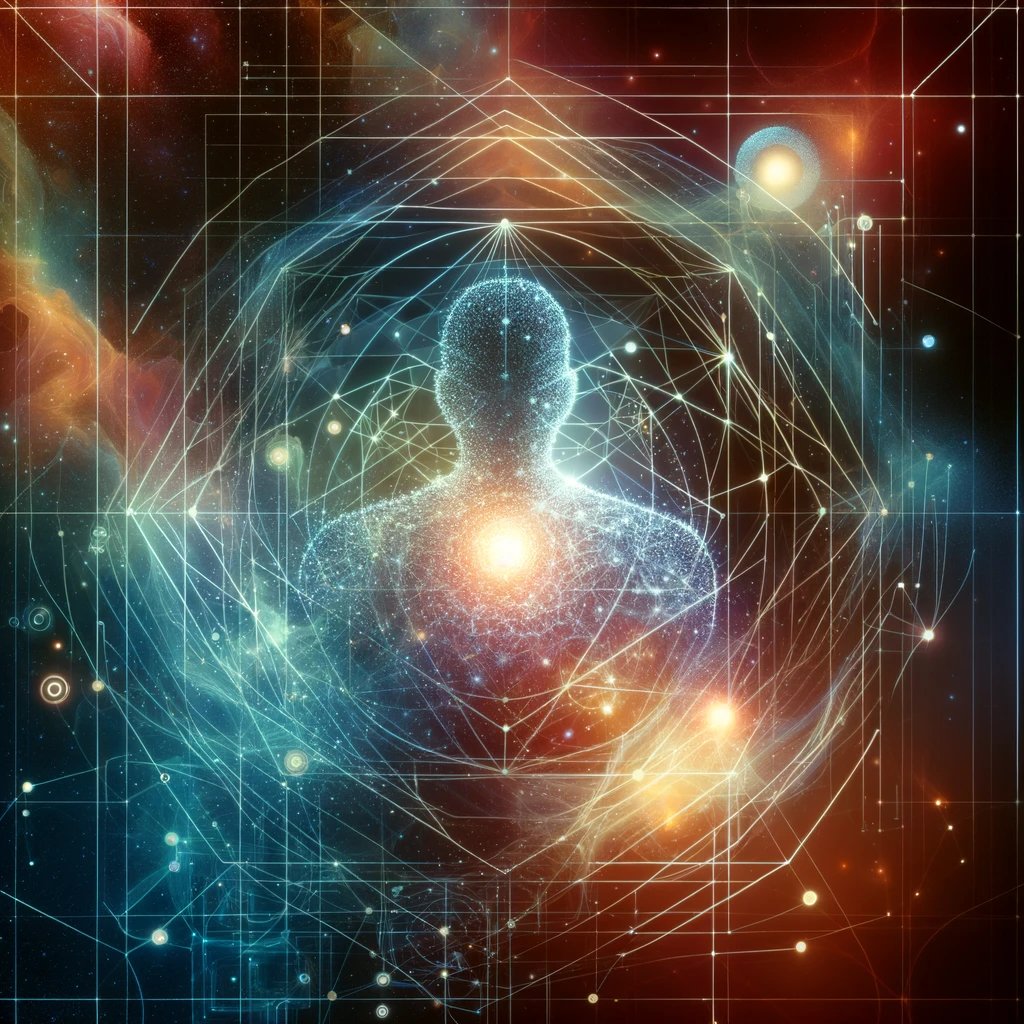
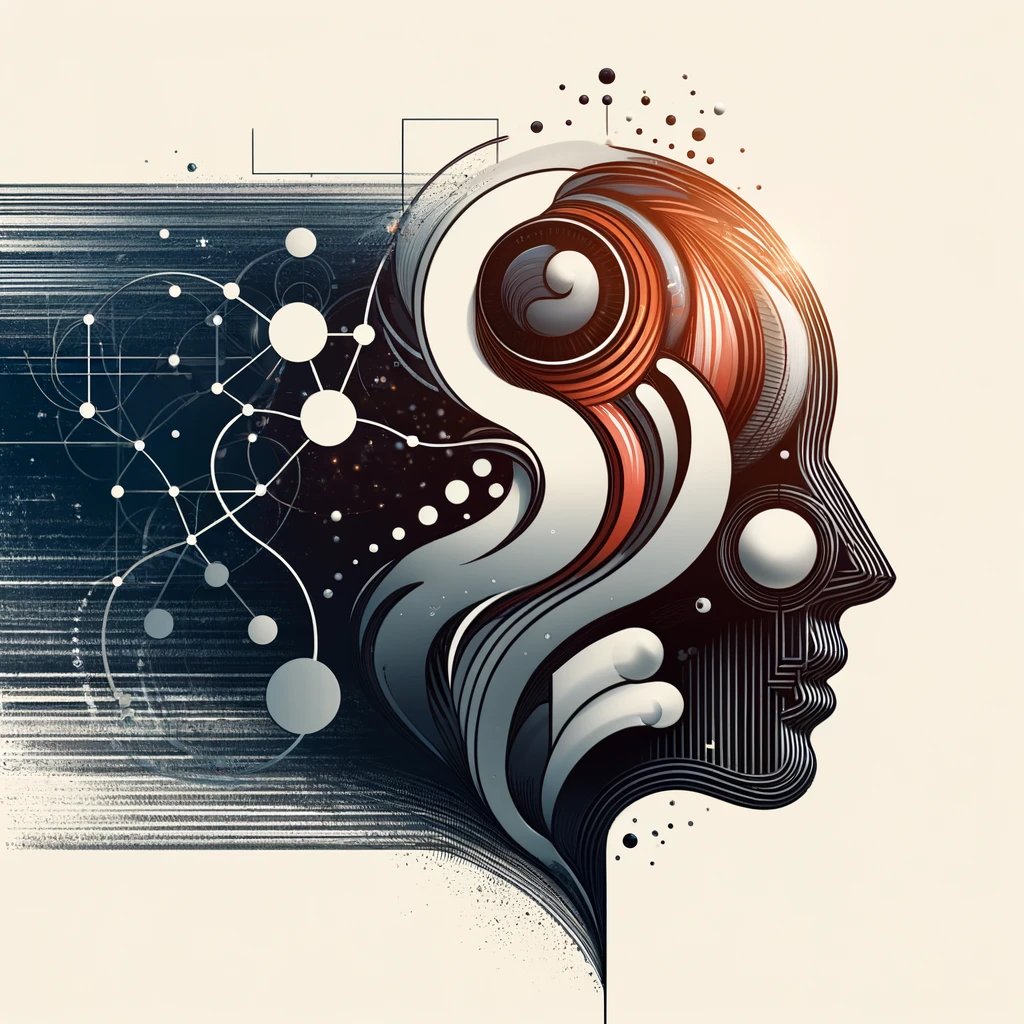







































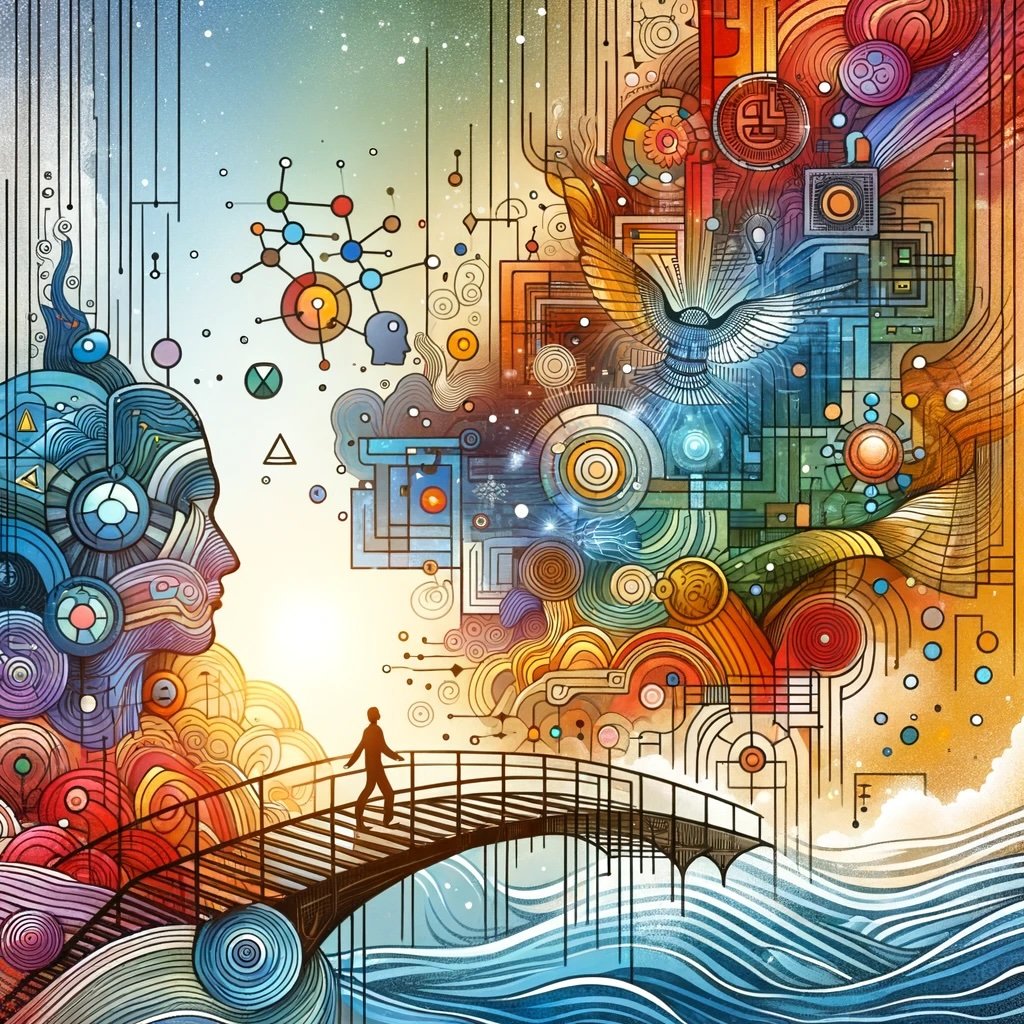

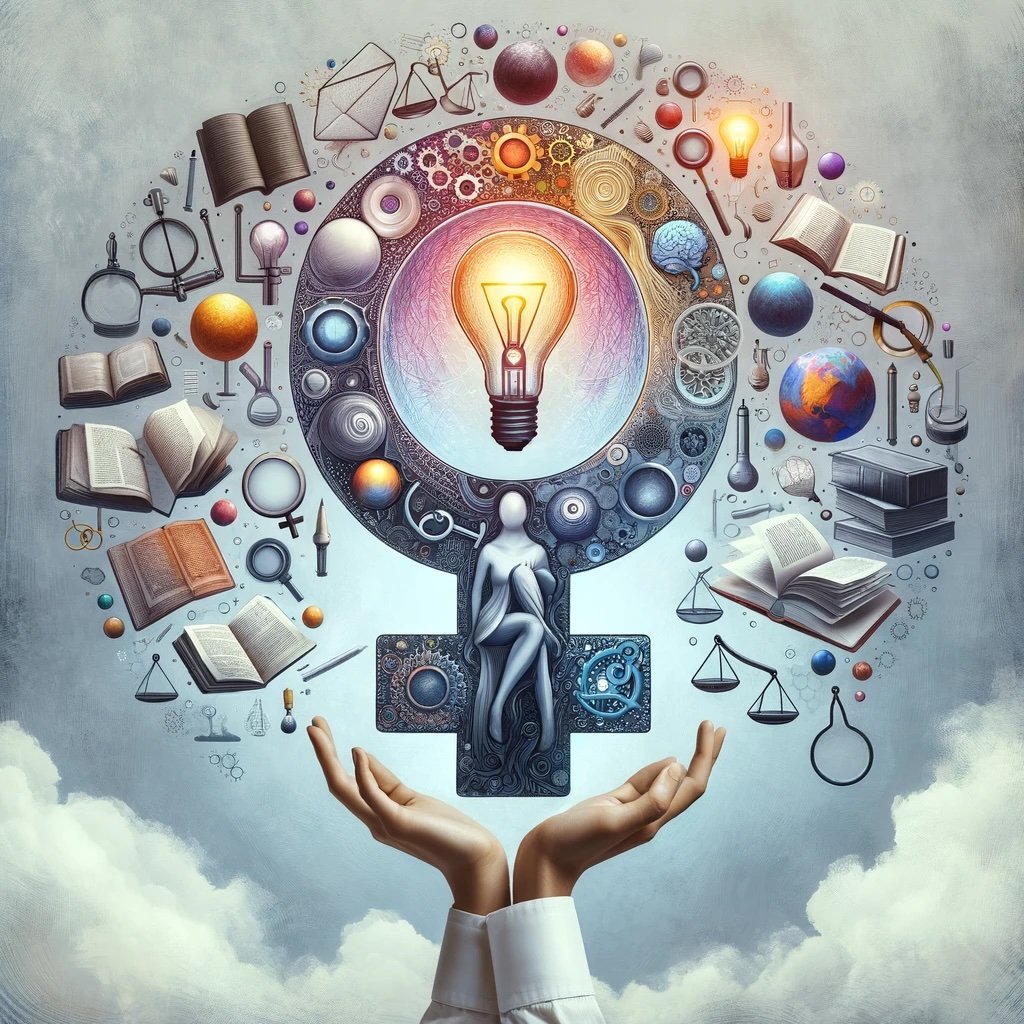












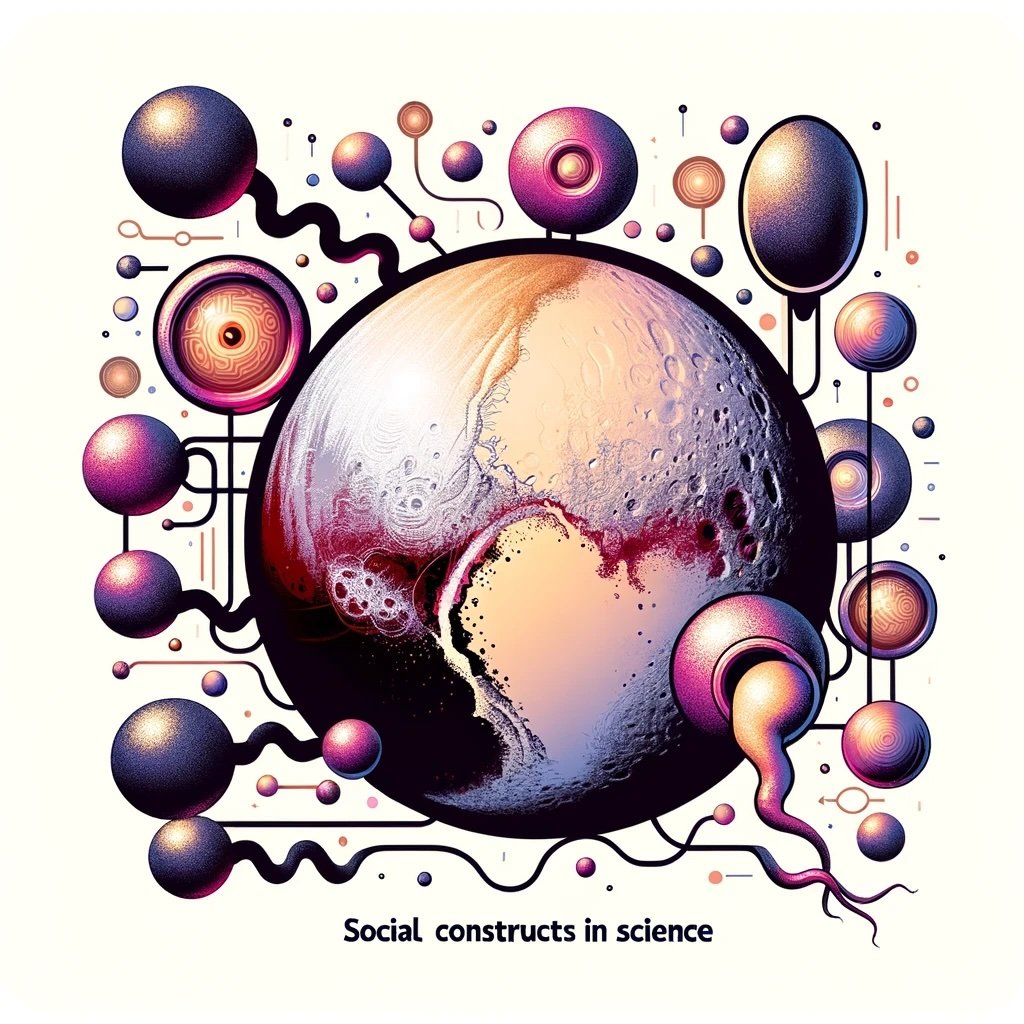
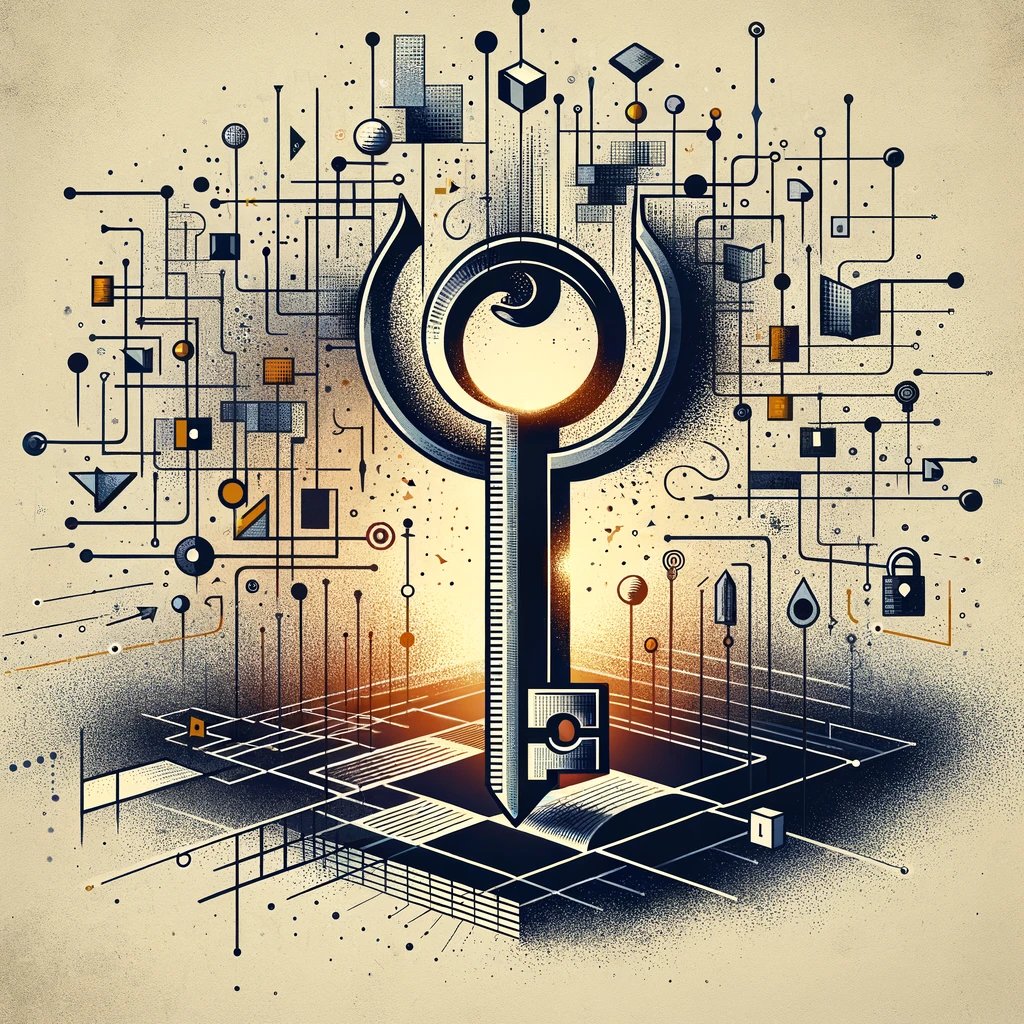










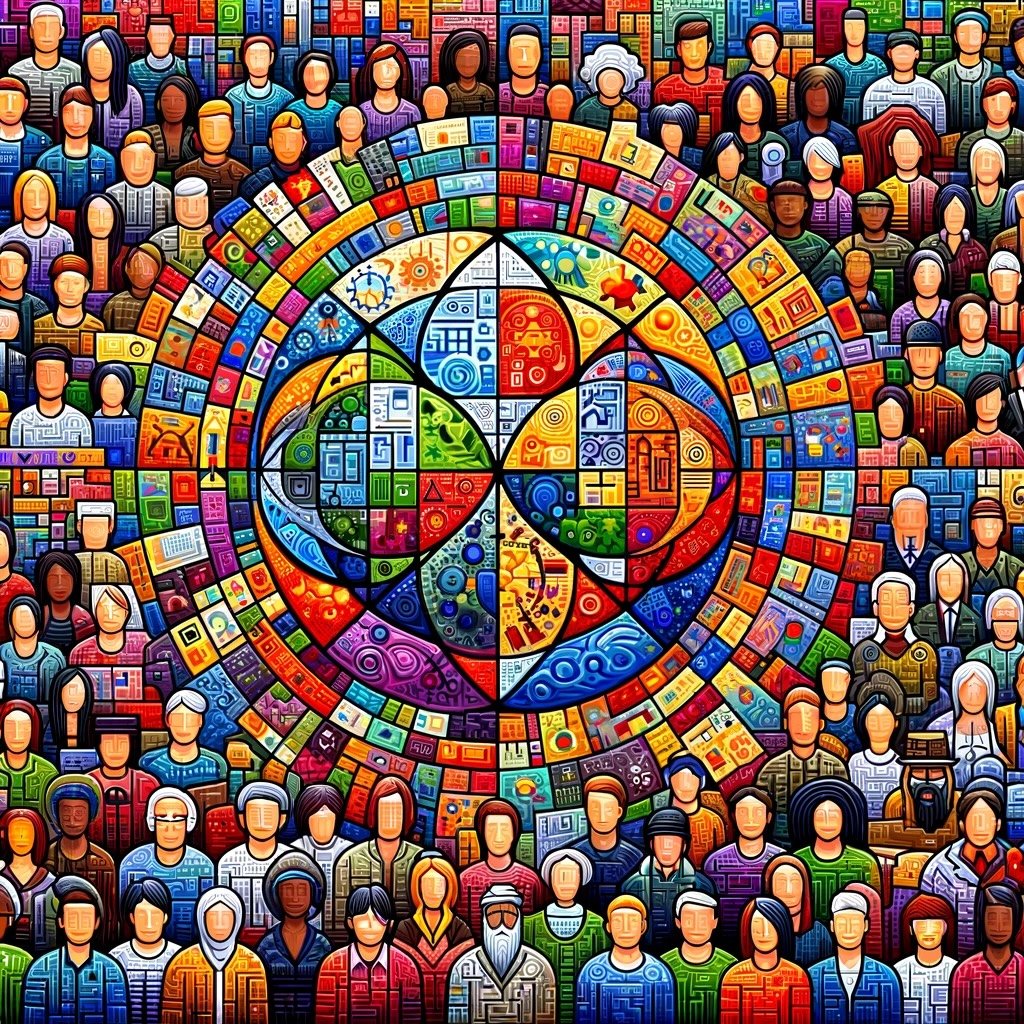





Examining the ways populism exploits incoherence and bad logic to make truth irrelevant, and the dangers this poses to political discourse.